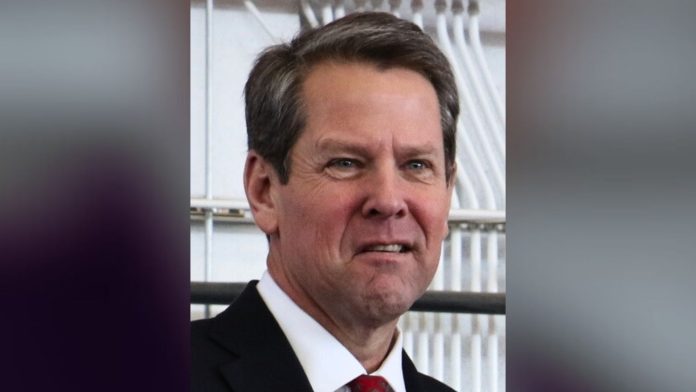Georgia – As worries about an economic downturn grow, Georgia’s state economist, Robert “Bob” Buschman, is raising concerns about how a potential recession could affect the state’s tax income.
Despite this, Governor Brian Kemp is optimistic that his budget plans will boost Georgia’s economy.
In a video conference with lawmakers from Davos, Switzerland, during the World Economic Forum, Kemp addressed a joint budget meeting of the House and Senate. He suggested that Georgia should use its surplus funds to reduce debt, lower taxes, and increase employee salaries. He’s also keen on investing in transportation projects.
Kemp emphasized the success of their careful financial management. He believes this success gives Georgia a chance to make significant investments and implement the biggest tax reduction the state has ever seen.
Kemp proposes allocating $1.5 billion to the Georgia Department of Transportation by June 30. This is to accelerate road construction and start a new program for freight infrastructure. Out of this amount, $200 million would be distributed to local governments for maintaining roads and bridges. Kemp also plans to fund various construction projects in cash and use $500 million to reduce debt in one of the state’s employee pension funds.
Public school teachers would get a $2,500 raise beginning July 1, in addition to a $1,000 bonus that Kemp sent out in December. State and public university employees would get a 4% raise on top of their $1,000 bonuses.
Check also: Despite opposition from some fellow Republicans, Georgia Governor pushes for private school vouchers bill
The governor also touted his support for speeding up a state income tax, which is projected to cost $1.1 billion in foregone revenue.
“Because we chose the smart, fiscally conservative path, we’re returning money to the people while meeting all of our liabilities,” Kemp said according to AP. “And we need to stay on that path, or else we risk going the way of these failed blue states.”
Georgia tax income to go down this year
Governor Kemp’s team expects that the tax income for the ongoing budget year, which is halfway through, will drop by almost 7%. Although the overall revenue has seen a slight increase of 1.6% in the first six months, state income tax revenues have decreased by 4.5% up to December, even before the implementation of income tax reductions. This overall revenue increase is partly due to the state starting to collect taxes on gas and diesel again.
Georgia’s state economist warns about mild recession
Georgia’s state economist, Robert Buschman, told lawmakers on Tuesday that the state might face a mild recession this year, if any recession occurs. Buschman, appointed as the state economist last fall, supported Governor Kemp’s cautious approach to revenue estimates and maintaining a surplus of funds. He expressed concern about ongoing inflation, which, although lessening, remains high. He also noted the Federal Reserve’s wary stance as a point of concern. Buschman added that rising labor costs, increased mortgage rates, and high vacancy rates in offices post-pandemic are signs that could signal economic challenges ahead.

“In summary, the economic outlook that went into the budget estimates is this: A mild recession is more likely than not beginning in the first half of this year,” Buschman said. “The scenario I’ve outlined suggests pull-backs from the unprecedented revenue growth since 2020. A slowdown in the economy and a modest increase in unemployment along with much lower inflation will be a drag on nominal taxable incomes,” he said.
State income, which had increased significantly after the pandemic, is now beginning to slow down.
Governor Brian Kemp has put forward a revised budget of $37.5 billion for this year, marking a $5 billion increase from the initial budget. However, for the upcoming budget year starting in July, he has suggested a spending plan of $36.1 billion.
Kemp’s proposals include raising salaries for teachers, police officers, and other state employees. He also plans to increase funding for school security and bus transportation expenses. Additionally, he intends to allocate hundreds of millions of dollars for infrastructure developments. These projects aim to enhance the state’s freight and logistics capabilities and accelerate road construction initiatives.
